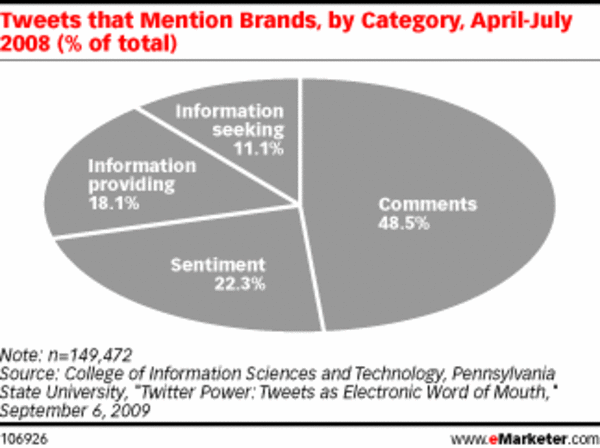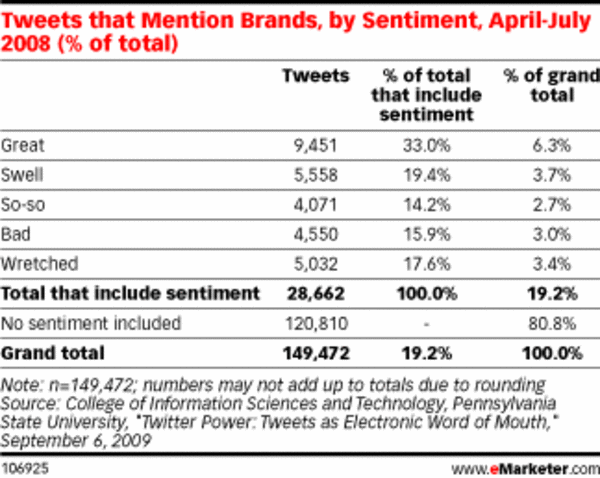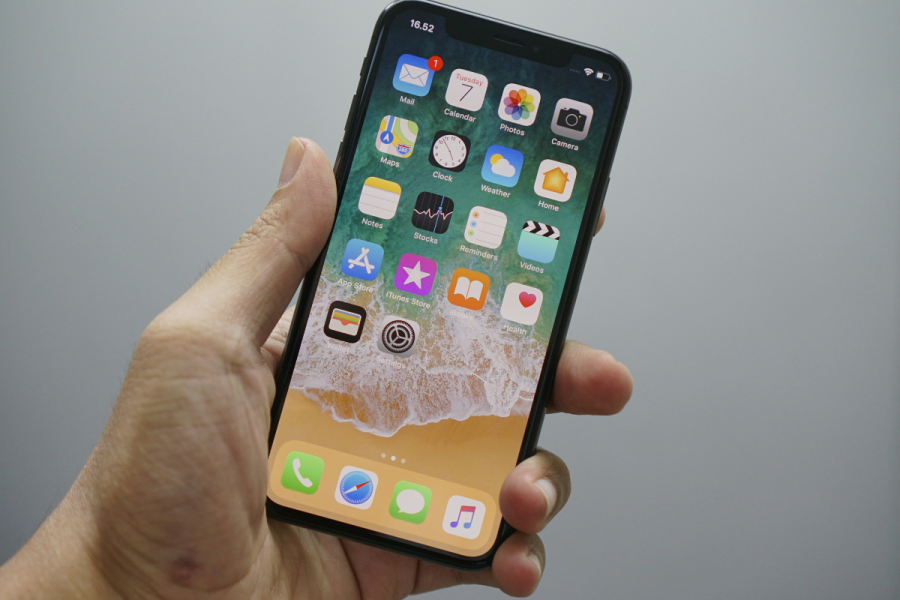Researchers at Pennsylvania State University recently revealed the results of a study which looked into how people were using Twitter to talk about products. Companies, of course, fear what a negative barrage of tweets can do to their brand, leading many to establish Twitter accounts themselves to provide information, customer service, and support. As it turns out, these businesses may not need to worry too much about what the “Twitter effect” can do to their image after all. The study revealed that the number of brand-related tweets where sentiment is expressed is not the dominating force that you may think. In fact, the majority of tweets mentioning a brand are merely casual comments or tweets from someone giving or seeking information. And when sentiment is expressed, it’s generally positive.

More Tweets are Information-Seeking, Not Opinions
According to the study, which looked at 150,000 tweets, 11.1% of the brand-related tweets were information-providing while 18.1% were information-seeking. The latter of these two is especially useful to companies looking to understand what questions and concerns customers have about their products. However, the large majority of the tweets – 48.5% – were simply comments made in passing which mentioned the brand but whose primary focus was something else.

The remaining 22.3% of tweets were sentiment-related, meaning tweets in which a user was expressing an opinion about a brand, either negative or positive. What was surprising about this subset was that users were more likely to express positive tweets than they were to complain.
Why So Cheery, Twitter?
This seems odd, actually, given that the Internet has typically been a place for disgruntled consumers to rant and rave more so than it’s been a place to praise what works. You can see this type of negative sentiment expressed everywhere from online forums to whiny blog posts about how such-and-such company “did me wrong!” In fact, the desire to express a negative opinion even seems to dominate feedback systems like blog comments, for example. Rarely does a writer receive comments like “great post” or “I totally agree” – rather, more comments resemble “you’re wrong and here’s why” or “how could you not mention X?”
That’s why it’s strange to hear that on Twitter, it’s positive sentiment that reigns. What makes this platform different from the rest of the Internet as a whole? Are Twitter users simply happier people? Or has the data been skewed by marketing campaigns where Twitter users are encouraged to tweet nice things about the company in order to win a prize?

Perhaps it’s because Twitter simply makes it easier to express yourself, allowing for a better balance between negative and positive sentiments. Typically, sharing your opinion on the web meant exerting a good deal of effort. Writing a blog post, recording a video, or leaving a blog comment are things that take time. For the most part, busy, information-overloaded web surfers aren’t going to take that time unless something really gets them fired up. Twitter, on the other hand, is so quick and easy to use, you can post a missive of joy in only seconds. And the 140-character limit allows you a no-pressure way of doing so.







